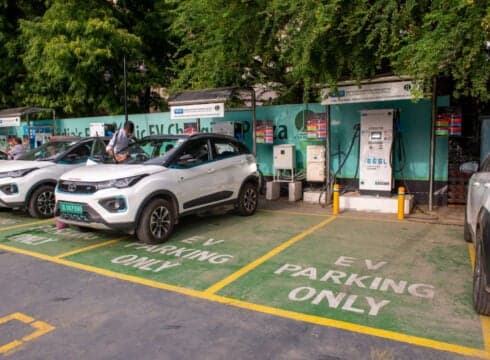Provisions of the draft policy will impact millions and lead to a trade-off between two sustainability verticals - livelihood and environment: IndiaTech
IndiaTech recommended lowering the two-year targets to 10-15% and increased efforts from the government to build supporting EV infrastructure
The industry body also listed the issues that the delivery executives might face, including issues with supply, charging, swapping and range anxieties
Inc42 Daily Brief
Stay Ahead With Daily News & Analysis on India’s Tech & Startup Economy
A group of tech companies and startups have listed down issues with certain proposals in the draft Delhi Motor Vehicle Aggregator Scheme.
In its submission to the Delhi government last week, IndiaTech, an industry body representing companies such as Ola, Zomato and Zepto, said that the provisions of the draft aggregator policy could impact the 11 Mn gig workers in the Delhi NCR region.
“Provisions of this draft policy will therefore impact millions and lead to a trade-off between two sustainability verticals – livelihood and environment,” said IndiaTech in its submission to the Delhi government. Given that the EV supply infrastructure is still nascent in Delhi, the policy has the potential to create a demand-supply disparity, added IndiaTech.
IndiaTech argued that the implementation of the policy could create a burden on delivery executives and cab drivers who own or rent vehicles.
“Financing is limited – despite central and state subsidies, EVs (electric two-wheelers) are (priced) at approximately INR 60,000-70,000. Retrofitting is approximately INR 20,000-30,000. These are steep figures for delivery executives, who use their household vehicles to undertake gig work,” the body said.
IndiaTech also listed the issues that the delivery executives and gig workers might face, including difficulties in getting supplies, accessing the required charging and swapping infrastructure and dealing with range anxieties.
Under the draft aggregator scheme, the government has mandated the need to get an aggregator licence before starting operations in Delhi NCR. IndiaTech noted that this might hinder the ease of doing business in the region and recommended the government do away with the requirement.
EV Adoption Targets & IndiaTech’s Recommendations
The government has proposed that two-wheeler delivery fleet aggregators need to have 10% of new vehicles be EVs within six months of the notification, leading up to a 100% EV fleet by April 1, 2030. For cab aggregators, 5% of their new four-wheeler fleet will have to be electric within six months of the notification.
Further, the draft policy has prescribed a target of having 50% of all new fleet vehicles as EVs in two years from the date of the announcement for two- and three-wheeler aggregators. For the four-wheeler aggregators, the two-year target is 25%.
It is prudent to mention that the Delhi government has not notified the scheme yet.
IndiaTech recommended lowering the two-year targets to 10-15% and increased efforts from the government to build the infrastructure to support the EV ecosystem in the nation’s capital.
Issues With Compliance
The government has also proposed penalties to be imposed on aggregators that fail to meet the requirements. The penalty for the shortfall in meeting the target is prescribed at INR 50,000 per vehicle. IndiaTech noted that if the draft aggregator policy is notified as is, the cost of compliance might trickle down to sellers, merchants and ultimately customers.
“The cost of compliance (as well as non-compliance in the form of penalty) might trickle to the sellers and merchants, adding to their loss of revenue and jobs. It must also be noted that the steep EV target might not be feasibly met, resulting in monetary penalties. Even these will trickle to sellers, merchants and end consumers,” noted the industry body in its representation to the Delhi government.
To be sure, there are several aggregators which have plans to switch to electric vehicles soon. Food delivery major Zomato has set a target of 100% EV adoption by 2030, for instance. Further, cab aggregator platforms Ola and Uber have also begun pilot programmes to deploy EVs in their fleet.
{{#name}}{{name}}{{/name}}{{^name}}-{{/name}}
{{#description}}{{description}}...{{/description}}{{^description}}-{{/description}}
Note: We at Inc42 take our ethics very seriously. More information about it can be found here.


